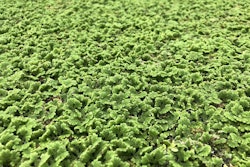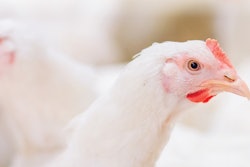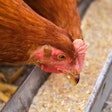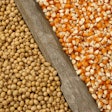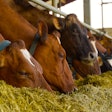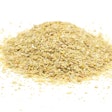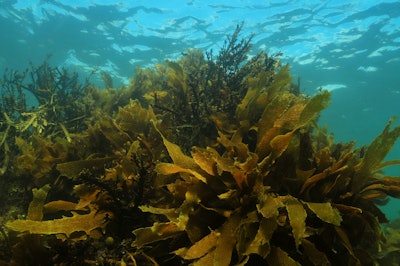
In the face of escalating costs of inputs and the banning of certain chemical molecules in animal nutrition, the quest for sustainable alternatives has gained momentum. Among these alternatives, algae, particularly marine algae, stands out as a promising solution with untapped potential.
Algae, seaweeds provide solutions for planet’s most pressing issues
The increasing costs of inputs and the prohibition of certain chemical molecules in animal nutrition have spurred the search for sustainable alternatives. Algae, with its ability to thrive in diverse environments and rapidly produce biomass, emerges as a compelling option to address these challenges.
Algae encompass a vast array of species, including microalgae and marine algae, each offering unique attributes. Microalgae, such as spirulina and chlorella, are well known for their nutritional value. However, it is the largely untapped potential of marine algae, including brown algae, that holds significant promise. Brown algae, abundant in marine environments, present a rich source of metabolites. Noteworthy compounds found in these algae include fucoidan, phlorotannins and laminarin, each demonstrating diverse biological activities. These compounds, often overlooked in traditional feed sources, have the potential to revolutionize animal nutrition.
One of the key advantages of algae is their rapid growth, allowing for efficient biomass production. Beyond its utility in animal nutrition, algae play a crucial role in carbon sequestration, mitigating the impacts of climate change. By harnessing algae’s carbon-absorbing abilities, the agricultural industry can contribute to environmental sustainability.
Recent global initiatives and scientific advancements
Internationally, collaborative initiatives are emerging to harness the potential of algae in animal nutrition. The global impact of algae in animal nutrition is gaining recognition, with emerging trends indicating a shift toward sustainable practices. The Algae Biomass Organization continues to play a pivotal role in driving collaborative efforts to integrate algae into mainstream agriculture practices, emphasizing its role in sustainable animal nutrition. In parallel, The Seaweed Coalition spearheads collaborative initiatives, uniting researchers, businesses, and policymakers to advance the integration of seaweed-based solutions, including animal nutrition. Their efforts drive innovation and contribute to the adoption of seaweed as a sustainable and nutrient-rich ingredient in animal feed. Several other organizations support the development of algae-based technologies.
Algae’s appeal in animal nutrition extends beyond serving as a nutrient source. Researchers are increasingly exploring the bioactive metabolites present in algae, such as fucoidan and phlorotannins, for their potential health and physiological benefits in animals. This dual approach of promoting algae as a nutrient source while studying its metabolites highlights the multifaceted nature of its contributions. Teams of scientists are specifically focusing on its applications in animal feed. Their ongoing endeavors contribute to the development of innovative feed formulations, emphasizing the university’s commitment to exploring sustainable and nutritionally optimized solutions for animal nutrition.
Other researchers in Ireland are exploring the use of algae to enhance the growth and health of fish, providing insights into the broader applications of algae in aquaculture. Moreover, recent studies delve into the molecular mechanisms underlying the positive effects of algae-derived compounds on animal health. This in-depth understanding is crucial for optimizing the use of algae in animal nutrition and developing targeted solutions. Scientists and researchers are now working particularly to understand the intricate biochemistry of plants and algae. Their groundbreaking work holds immense potential for applications in animal and human health, showcasing a commitment to advancing our understanding of the vital interplay between bioactive compounds in plants and algae and their impact on overall well-being.
Industry innovations in algal research and applications
Algae’s application in animal feed extends globally, with various regions adopting this sustainable alternative. Scientific research supports the positive impact of algae in different animal species. For instance, seaweeds have been successfully incorporated into the diets of livestock, poultry and aquatic species, showcasing the versatility of algae in diverse agricultural settings.
Several companies have made significant strides in developing solutions based on marine algae for animal nutrition. These innovative entities focus on harnessing the nutritional benefits of marine algae to enhance the well-being and performance of livestock and aquatic species. Their commitment to sustainability and cutting-edge research positions them as leaders in the integration of algae into animal nutrition practices.
Furthermore, various companies in the animal feed industry are incorporating marine algae into their ingredients formulations. These companies prioritize the use of algae as a key ingredient, emphasizing its potential to provide a sustainable option for improving the health and performance of animals. The adoption of algae in feed formulations signifies a broader industry trend towards environmentally friendly and nutritionally optimized solutions. While specific names are not mentioned here, these examples showcase the diverse range of companies contributing to the growing impact of marine algae in animal nutrition. Only some years ago, the term “phycogenics” was coined by a feed additives company (from Greek Phykos = algae). Marine algae represent a large spectrum of metabolites or “phycogenics,” that can potentially modulate and support the physiology of animals.
Researchers and private companies are actively exploring the use of marine algae to mitigate methane emissions, a promising avenue to address environmental concerns. Algae can potentially disrupt the methane production process in ruminant animals, such as cattle, through dietary supplements. However, challenges persist, including optimizing algae strains for efficiency, scaling up production and ensuring economic viability. Additionally, collaboration between researchers, industry stakeholders and policymakers is crucial to navigate regulatory hurdles and promote widespread adoption of this eco-friendly solution. Despite these challenges, the ongoing research signifies a proactive effort to harness the potential of marine algae in the global battle against greenhouse gas emissions.
To fully unlock the potential of algae in animal nutrition, precision technology is paramount. Identifying, screening and standardizing the levels of metabolites within algae are essential steps. Precision technologies, including micro-encapsulation, ensure the preservation and precise delivery of the active metabolites, enhancing their positive effects on animal health and nutrition.
The future landscape of algae in animal nutrition
As the agricultural industry seeks sustainable solutions, algae’s role in animal nutrition is poised to expand. Ongoing research, coupled with collaborative efforts between academia and industry, will likely unveil new applications and benefits. The variability of algae’s metabolites emphasizes the importance of thorough lab work, pushing for standardized approaches that ensure high quality and consistent composition in active molecules to positively impact animal health and nutrition.
In conclusion, algae represent a green revolution in agriculture and animal nutrition. As the world seeks sustainable alternatives to traditional practices, the diverse and untapped potential of algae, coupled with scientific advancements and precision technologies, holds the promise of transforming the way we nourish our livestock and, ultimately, our planet. With companies and universities actively contributing to the field, the integration of algae into mainstream animal nutrition practices is on the horizon, heralding a more sustainable and eco-friendly future for agriculture.


